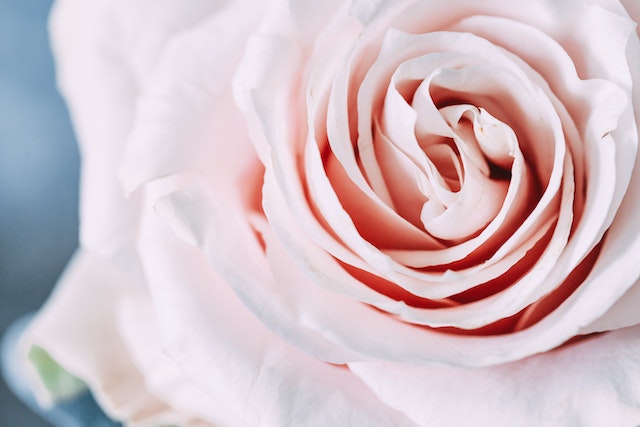
Dispelling Myths and Empowering Women: Lessons from Principles of Pleasure’s First Episode

Dispelling Myths and Empowering Women: Lessons from Principles of Pleasure’s First Episode
“Knowing where the clitoris is is knowledge. Knowing where your own clitoris is is power.”
Principles of Pleasure is an amazing limited series that came out on Netflix in 2022. It tackles the knowledge gap for women about their bodies and sexuality by dispelling common misconceptions and exposing the issues within our current sexual education system. This show is a must-watch, as it provides authentic and comprehensive education on crucial sexual topics.
The first out of three episodes, Our Bodies, was enlightening and impactful. Although I cannot do this episode justice, here are some key takeaways from the show that everyone should know, even if they are unable to watch it!
Initially, all individuals have the same set of reproductive organs that are arranged in a similar fashion. However, around the fifth or sixth week of pregnancy, specific groups of cells start to develop into distinct genital structures. For instance, in male embryos, a ridge runs down the center of the scrotum, which would have developed into two separate labia if the hormonal or chromosomal makeup was different. In female embryos, the external genitalia forms the vulva, which includes the entire genital package. Similarly, the penis and clitoris share the same structure but are organized differently.
When people say vagina, they mean vulva. The vulva refers to the external female genitalia, playing a crucial role in childbirth, urination, and sexual arousal. Another part of our vulva is our mon’s pubis, which is our hair-bearing area. Calling our genitalia a vagina is reducing it to the reproductive organ, leaving out many important parts.
The vagina changes in its flexibility for pregnancy, penetration, etc. Hormones play a big role in impacting how flexible the wall of the vagina is.
The hymen is a thin membrane that partially covers the vaginal opening. The hymen has been used as a marker of virginity–the concept being that when you have sex for the first time, your hymen will break and be gone “forever”. But, this is a myth. When a vagina is penetrated, the hymen will stretch. If it does break, like all of our other skin, it will heal.
The clitoris is one of the most sensitive parts of the female body. What’s most visible is the clitoris hood, which is the flap of skin serving to protect it. But this is not the whole clitoris. The clitoris has two very long bulbs, made of erectile tissue, that extend from the clitoris hood deep underneath our skin. In response to stimulation, the bulbs fill with blood, becoming erect and feeling pleasurable to women.
From a scientific perspective, there is no anatomically distinct button known as the G-spot located within the vaginal canal. However, some individuals may experience G-spot stimulation when the erectile tissue of the internal clitoris enlarges during arousal and presses against the front wall of the vagina. This creates the sensation of a G-spot. It should be noted, though, that not everyone’s anatomy is the same, and some may not experience this sensation.
Neuroscientist Nicole Prause explained that physiologically, an orgasm is “8-12 contractions that occur throughout the pelvis that start just shy of a second apart and increase in latency until their termination.” Orgasms are essentially a Lot of neurons firing synchronously that trigger a reflex.
There are various kinds of orgasms, including clitoris orgasms, vaginal orgasms which are typically achieved from penetration, and a blended orgasm which results from a combination of clitoral and vaginal stimulation. There are also anal-induced orgasms, and a combination of these three is called a tri-blended orgasm. One-fourth to one-third of women are reliably orgasmic from vaginal stimulation itself. The remaining two-thirds to three-fourths of women are sometimes, rarely, or never orgasmic from vaginal penetration alone. Most sensation comes from the clitoris. Because sex is how many cisgender, heterosexual men orgasm, it is a common misbelief that a woman must orgasm that way or there is something wrong with her. This, of course, is not true, as seen with the fact that more than half of women are not orgasmic from penetration alone.
“Squirting is not a necessary component of an orgasm, as it can occur independently or in conjunction with an orgasm. Squirting is caused by stimulating the urethral sponge, prompting the prostate gland to secrete a fluid that is oftentimes the same as the wetness we experience during sexual activity.
It’s common for females to begin masturbating at a young age, as it provides a way to experience pleasure independently. There are also other benefits associated with masturbation! Principles of Pleasure states “Exploring our own bodies [through masturbation] and understanding what feels good or doesn’t feel good can also help us develop an amazing sixth sense called interoception.” Interoception is being aware of what is going on in our own bodies! Dr. Lori Brotto explained that because female genital structures are largely hidden from view, females remain largely unaware of what different feelings are like without this deliberate exploration of our bodies.
“Dirty Lola” showed that sex toys are tools. There are countless different kinds for each individual person, which when used safely can allow one to feel pleasure without needing a partner! Sex toys are wellness products, as they aid in orgasms, which have actual health benefits!
Principles of Pleasure explains that orgasms activate endorphins, which expel cortisone, which relieves stress and supports our overall well-being. Scientists now speculate that a state of high sexual arousal can even aid in managing high general anxiety–without even orgasming.
By watching Principles of Pleasure on Netflix, you can learn and deeply understand that all individuals, including yourself, are deserving of pleasure. Empower yourself and learn about the principles of pleasure today!
